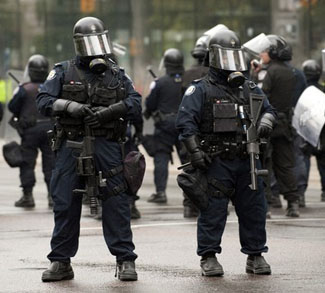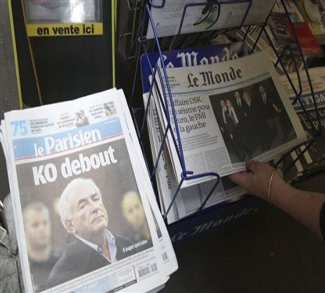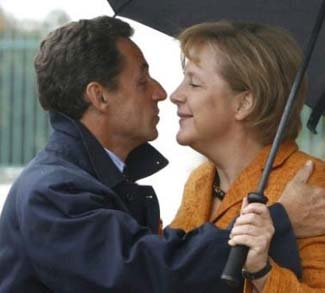FORECAST
A lack of progress on pressing global issues after the Toronto summit is calling the effectiveness of the G20 into question.
Through all of the hype, the price tag, and the protests, last weekend’s G20 summit didn’t accomplish very much at all. The only solid ‘achievement’ that one could point to is an agreement between members to begin cut government deficits by 2013, which is tantamount to simply ignoring the substantial differences that exist between the United States (which believes that continued stimulus is needed to protect global recovery) and several EU countries (which have felt the sting of speculative bond markets and have consequently gravitated towards austerity). Thus, as leaders fly home and fences are taken down in Toronto, many observers are left questioning whether the G20 is cohesive enough to tackle transnational political, economic, and security challenges.
One issue that was broached in G20 discussions between world leaders- though it was notably absent from the final declaration- was Chinese currency reform. It seems that President Obama is under the impression that revaluation will be coming in the near future, and there are signs to indicate that he’s correct. The Chinese government has declared that currency reform will be forthcoming, though it will come at a pace that only it decides. Also, Beijing has been unusually tolerant of strikes in Honda and Toyota plants as well as an overall trend of rising wages on the Chinese mainland. Expect Beijing to embark on the process of shifting the Chinese economy away from low-cost manufacturing to high value-added products by allowing the renminbi to appreciate in the next few months. No matter what foreign pressure is brought to bear, this process will be slow and a renminbi that is strictly dictated by market forces is still something that we won’t see for a long time.
Aside from indirect conversations over currency reform- a development that had already gained some momentum before this weekend- the Toronto G20 summit will be remembered for what it didn’t accomplish rather than what it did. Proposals for a bank levy were tidily shot down, climate change wasn’t broached, and discussions on global regulations to avoid another 2008 global financial crisis never came to fruition. If not for the agreement to begin cutting deficits by 2013- an announcement that is as fanciful as it is non-binding- the $1 billion summit would have achieved absolutely nothing.
Given the apparent gap between style and substance, it comes as no surprise that the G20 is gaining a reputation for being an ineffectual soapbox for global leaders. Its membership brings together such a wide variety of countries, each with their own level of economic development and geopolitical goals, that it makes accord within the framework of the G20 intrinsically hard to achieve.
The next G20 summit in Seoul in November will be critically important for determining the future of the bloc. There are two possibilities moving forward. Either the G20 develops a stronger institutional framework that allows for constant negotiations culminating in these grandiose summits, or it continues to be incapable of tackling pressing global issues, in which case it will fast be relegated to the dustbin of history.
SUMMARY OF EVENTS: June 21st – June 28th, 2010
NORTH AMERICA
Canada
Nearly 600 people were arrested as global leaders and elites met behind a fortified perimetre during the G8 and G20 Summits in Huntsville and Toronto this weekend.
A man in Toronto has been charged with possession of explosives inwhat police say is an arrest related to a G20 summit in the Canadian city.
United States
US Treasury Secretary Timothy Geithner has told the BBC that the world “can not depend as much on the US economy as it did in the past”.
The commander of multinational forces in Afghanistan, Gen Stanley McChrystal, has been dismissed by US President Barack Obama after critical comments about senior administration officials.
Oil is gushing unhindered into the Gulf of Mexico after an underwater accident at the site of the current major leak.
A Deepwater Horizon rig worker has told the BBC that he identified a leak in the oil rig’s safety equipment weeks before the explosion.
CENTRAL AMERICA & THE CARIBBEAN
Jamaica
Alleged Jamaican drug lord Christopher “Dudus” Coke has been extradited to the United States, one month after a manhunt for him sparked violence that left at least 73 people dead in the capital, Kingston.
WESTERN EUROPE
Italy
Italian police arrested 24 people on Monday, most of them Chinese, on charges of laundering about 2.7 billion euros ($3.33 billion) from tax evasion, counterfeiting, prostitution and stolen goods.
Greece
A bomb blast at the offices of Greece’s public order ministry in Athens has killed one person, police say.
EASTERN EUROPE & RUSSIA
Turkey
Turkish commandos backed by helicopters deployed along the Iraqi border on Monday after Kurdish guerrillas killed 11 soldiers at the weekend in one of the deadliest attacks for years in their separatist war.
Turkey has launched a new military operation against Kurdish rebels along the Iraqi border, prompted by a series of insurgent attacks against security forces. The campaign is the latest in the long struggle against the Kurdistan Workers Party, or PKK, by the Turkish government, which is trying to balance integration of Kurdish citizens with appeasing outrage over the attacks.
Belarus
Russia’s state-controlled gas monopoly Gazprom has started to cut supplies to neighbour Belarus over its debt after Russian President Dmitry Medvedev ordered the reduction.
Russia
Russian President Dmitry Medvedev and US President Barack Obama have hailed an improvement in relations between Washington and Moscow.
MIDDLE EAST
Iran
Iran’s Red Crescent Society has canceled a plan to send a shipload of aid to the Gaza Strip, saying it was denied access to pass through the Suez Canal, a claim rejected by an Egyptian official.
Israel
U.N. Secretary-General Ban Ki-moon criticized Israeli municipal authorities on Wednesday for pressing ahead with a plan to raze Palestinian homes in East Jerusalem, calling it unhelpful and illegal.
Israeli settlers say they will hire private security firms to evacuate four families if they do not leave property by July 4.
Measures are in place for the increase in road shipments to the Gaza Strip following Israel’s decision to change the conditions of its blockade of the Palestinian enclave.
Israel said Sunday it was easing a land blockade on the Gaza Strip to allow in all goods except for arms and materials used to make them.
SOUTH ASIA
Afghanistan
Afghan president Hamid Karzai has reportedly met with the Taliban’s most senior commander Serja-eddin Haggani in Kabul as UK calls for peace with the militants.
Sri Lanka
Sri Lanka has slammed the creation of a panel by the United Nations to advise on alleged human rights violations in the country during the final stages of the civil war, which ended last year.
CENTRAL ASIA
Kyrgyzstan
Authorities in Kyrgyzstan said Wednesday that more than half of those who fled to neighbouring Uzbekistan during ethnic clashes had returned in a mass influx across the border.
EAST ASIA
China
Taiwan and China have finalised details of what many believe will be the most important agreement between the two sides in 60 years.
Policymakers in the world’s major economies will closely monitor the Chinese yuan this week for signs it is actually moving after Beijing announced it would make its exchange rate more flexible.
Japan
Japan’s Prime Minister Naoto Kan has apologised to people in Okinawa for “the burden” of US bases on the island.
AFRICA
Starving people in drought-stricken west Africa are being forced to eat leaves and collect grain from ant hills, say aid agencies, warning that 10 million people face starvation across the region.




